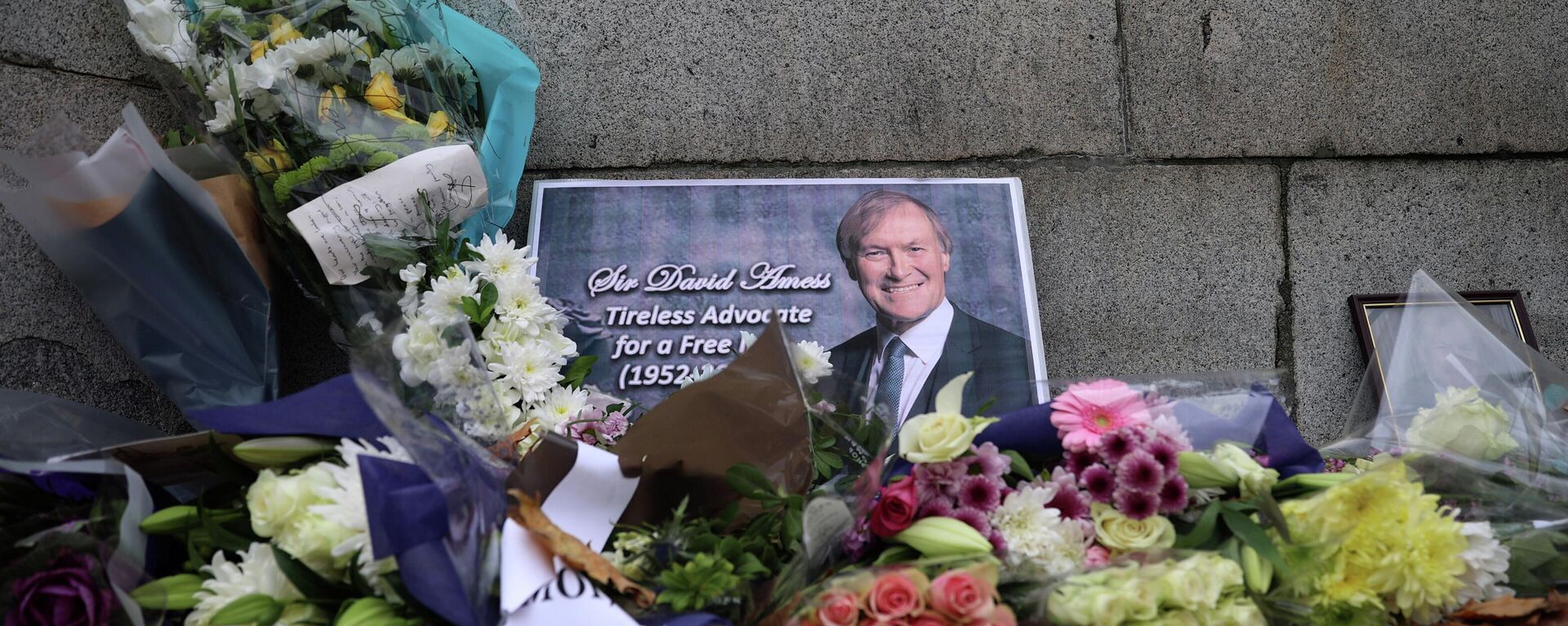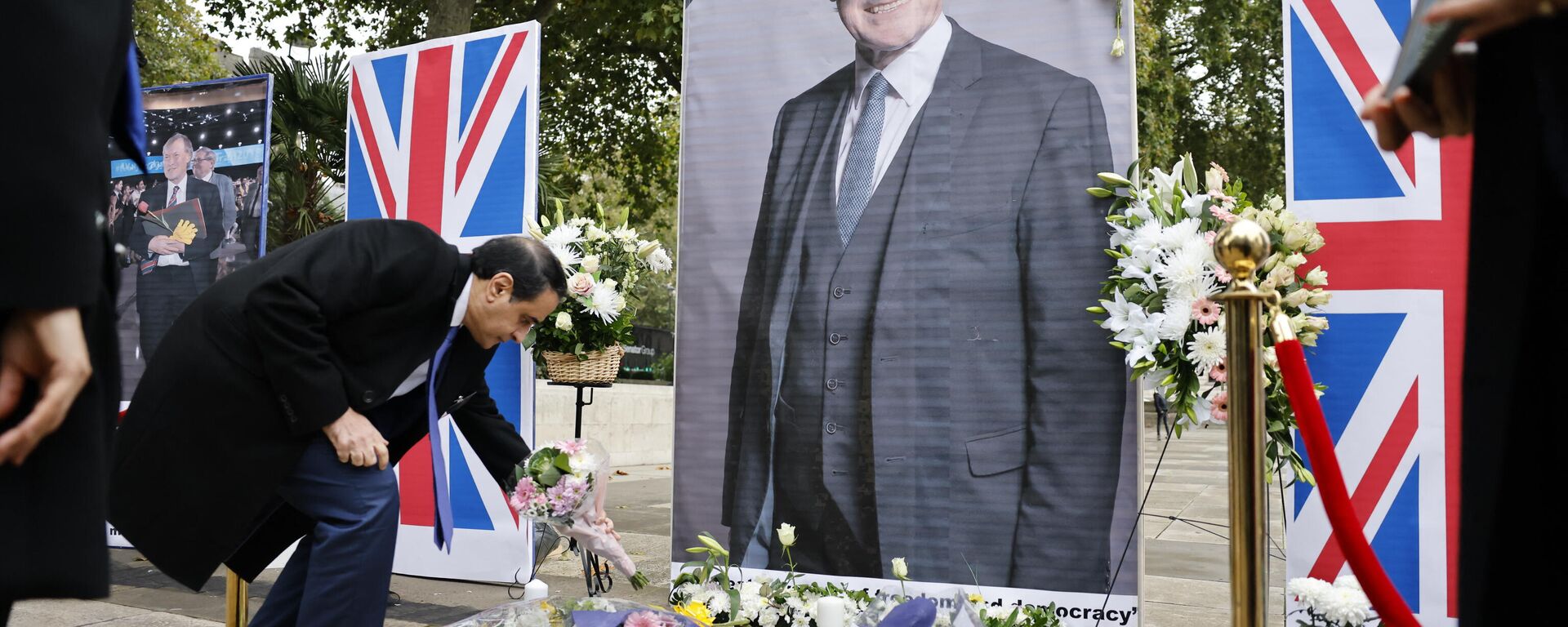Why UK Terrorism Prevention Strategy is in the Spotlight After Sir David Amess Killing
13:33 GMT 21.10.2021 (Updated: 15:16 GMT 28.05.2023)
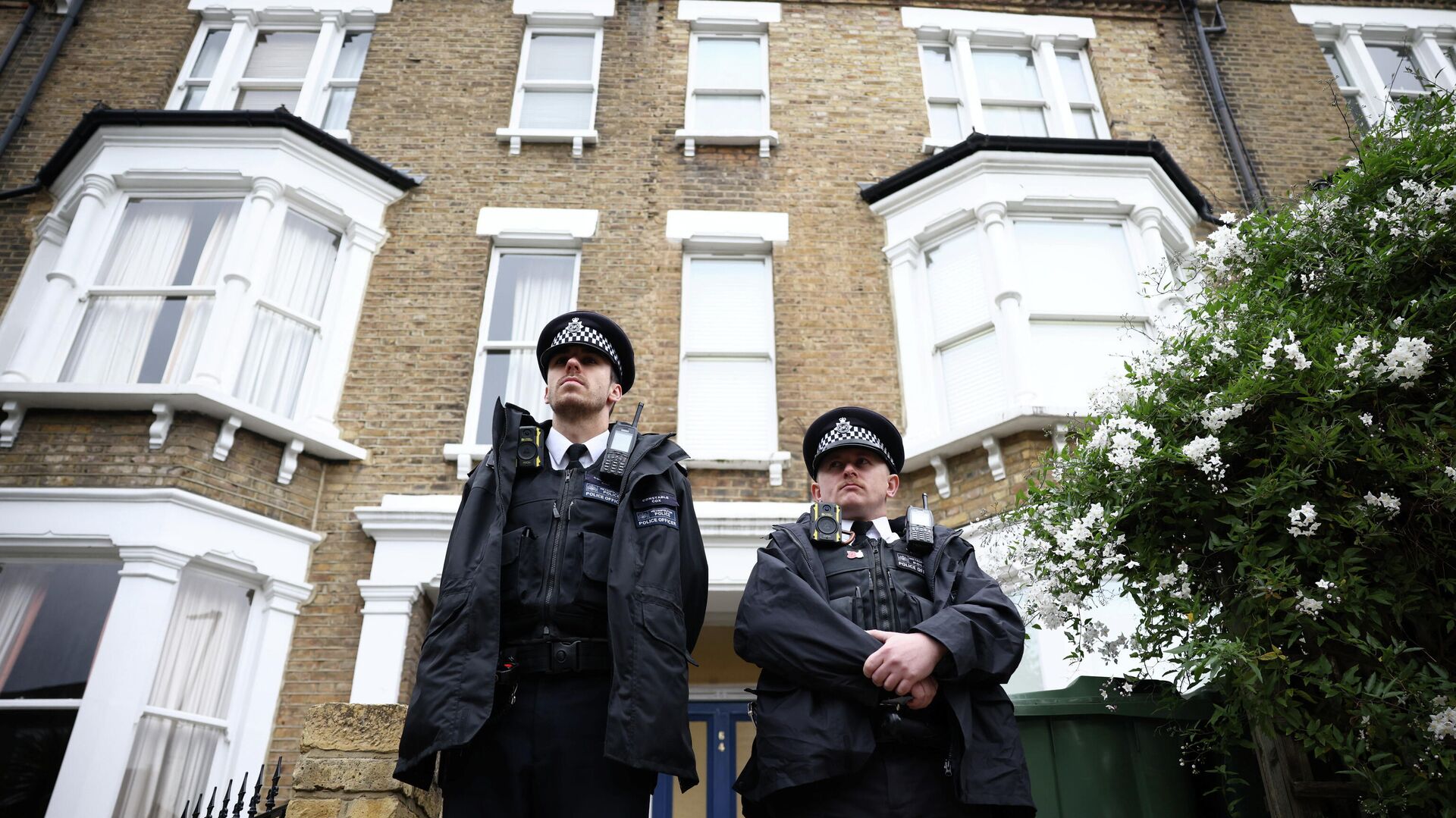
© REUTERS / HENRY NICHOLLS / Police stand guard outside house believed to be address belonging to man arrested in connection with killing of British MP Amess, in London
Subscribe
The murder of Sir David Amess has triggered new concerns about the government's initiatives to tackle early-stage radicalisation. Peter Williams, a senior lecturer with the Liverpool Centre for Advanced Policing Studies has shed light on apparent gaps in the UK's "Prevent" and "Channel" programmes.
It has turned out that MP David Amess' suspected killer, Ali Harbi Ali, a 25-year old British national of Somali heritage, had previously attended the government’s Channel counter-terrorism programme.
Channel is an early intervention multi-agency process designed to safeguard vulnerable individuals from being drawn into extremist or terrorist behaviour. It is usually preceded with the so-called Prevent referral, which is made by anyone who is concerned about someone they know being at risk of radicalisation.
Ali was reportedly first referred to Prevent as a teenager in 2014. After that, he went through the Channel process and was discharged. Still, several years later, Ali was arrested at the scene on suspicion of murder after the British veteran MP was stabbed to death. The preliminary investigation revealed a "potential motivation linked to Islamist extremism", according to Scotland Yard. The suspect has been charged with murdering Amess and with terrorist offences. He will appear before Westminster Magistrates Court on Thursday afternoon and will probably go on trial next year.
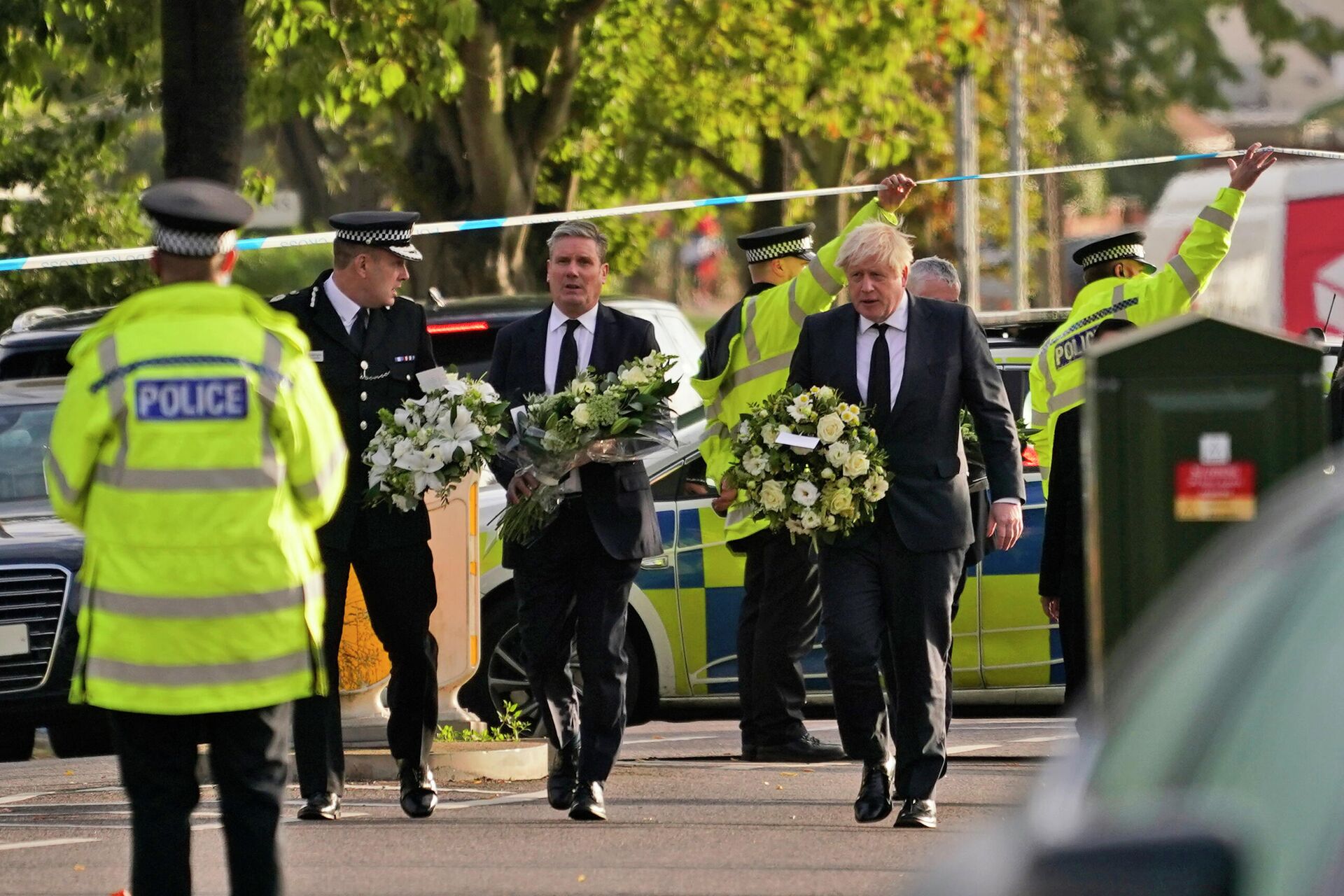
British Prime Minister Boris Johnson, right, and Leader of the Labour Party Sir Keir Starmer, second from right, carry flowers as they arrive at the scene where a member of Parliament was stabbed Friday, in Leigh-on-Sea, Essex, England, Saturday, Oct. 16, 2021
© AP Photo / Alberto Pezzali
Prevent and Channel Programmes
"The Prevent element is one of the four pillars of the UK counter-terrorism strategy, which is pursue, protect, prepare, and the fourth one is prevent. And it was put together originally in 2003, aimed at Islamic radicalisation," explains Peter Williams, a senior lecturer with the Liverpool Centre for Advanced Policing Studies at Liverpool John Moores University and a former police officer.
When a person is referred to Prevent, the process is handled by expert officers in the local police force. The police need to ensure that there are no ongoing operations or probes which the referral could potentially affect, Williams explains. After that, local authority teams and community organisations take measures to divert referred persons away from being drawn into violent behaviour. If there is a genuine risk of radicalisation, the case is considered by a multi-agency Channel Panel that decides whether the person should be provided with a "tailored support package". This package includes mentoring, theological guidance, education, and career assistance.
"Channel is actually a voluntary process," the retired police officer emphasises. "So, you can't force anybody to go into the Channel process. So, if [Ali Harbi Ali] entered the Channel, which it looks like he did five years ago or seven years ago, that was voluntary."
Actually, there's only a minority of people who are referred to Channel following the Prevent stage, he points out. According to the programme's official factsheet, Prevent supported 2,352 individuals between 2015 and 2020; 6,287 referrals to Prevent were made in the year ending on 31 March 2020. Of all the referrals in 2019/2020, 51% cases were related to mixed or unstable ideologies: 24% to Islamist radicalisation; 22% to right-wing radicalisation. Of those cases 1,424 were discussed at a Channel panel but only 697 were eventually submitted for the Channel process.
"They remain in the Channel process, I think it's for 12 months maximum, but are reviewed at six monthly periods," Williams says, adding that the programme has been subjected to changes. "Although there have been some leaks which indicate that rather than a 12-month process it will now go to a three-year process."
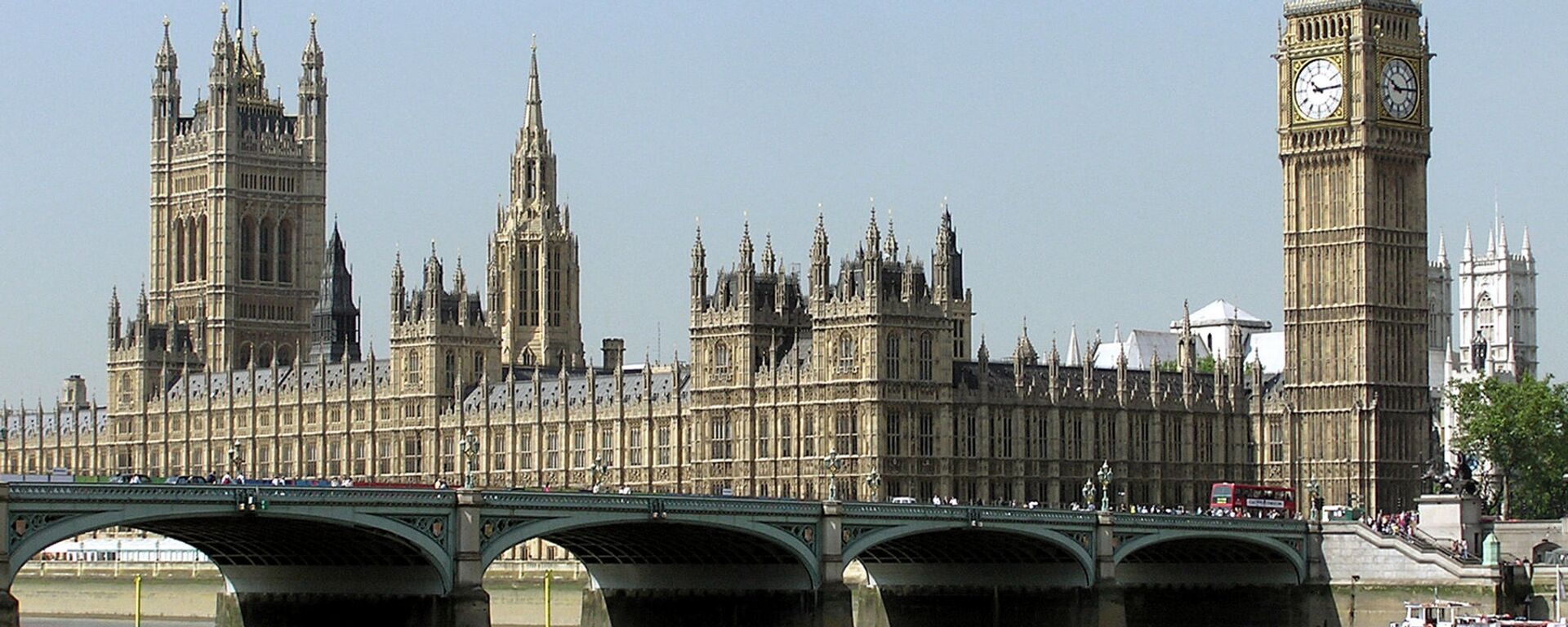
Threat Level Against MPs Raised to ‘Substantial’ After Amess Killing as Police Review Their Security
21 October 2021, 10:01 GMT
Some Withdraw or Do Not Accept Referrals
Still, if a participant withdraws from the programme, there's nothing anybody can do about it, the academic notes. For the same reason that Prevent and Channel programmes are voluntary some people choose not to go through the process. In addition to that, the government initiative's lack credibility within the Muslim community "who perceive it to be police bias", the academic explains. "Hence, they voluntarily don't want to be part of it," he notes.
This situation poses a substantial challenge to the law enforcement authorities, who are seeking other options to monitor people vulnerable to radicalisation, using the powers they’ve got, the retired police officer notes, referring to Boris Johnson's effort to considerably toughen the country's anti-terror legislation.
"You may hear or see it written down - SOI - which means 'subject of interest'," Williams says. "So, for example, after an attack, the press always will tend to pick up in the UK here, such a body was considered to be a SOI by MI5 since 2017. That means he's come across, come to the attention of security services. Now, that may well have been because it was triggered by a referral to Prevent."
BoJo's Gov't Seeking to Close the Programme's Gaps
The Ali Harbi Ali case may raise questions for cabinet ministers, police and security services about the government's Prevent and Channel programme, according to the Guardian. Previous records show that the individual voluntarily accepted referral to the Channel scheme and went through its processes, after being identified as vulnerable to radicalisation. The Guardian quotes a source familiar with the matter as saying: “[Ali] was not thought to pose a threat of terrorist violence and the case was closed." Furthermore, Ali's father, a former senior Somalian official, had always been known to be an ardent critic of terrorism, according to the media.
Earlier this year the UK government appointed William Shawcross as the new reviewer of the counter-terrorism strategy Prevent. Shawcross is known for his criticism of migration and Islamism. Following his appointment, over 450 Islamic organisations, including 350 mosques and imams, called for boycotting the government’s review of the anti-radicalisation programme, citing alleged anti-Muslim bias.
According to the Guardian, the review would be fast-tracked in the wake of Amess' murder with proposals to make the strategy more "security-oriented, giving police a greater role in panels drawing up intervention schemes and expanding the role of the intelligence agency MI5".
However, some law enforcement and intelligence agents express concerns that by the new security-oriented approach could deter Brits, including representatives of the country's Muslim communities, from making Prevent referrals.

